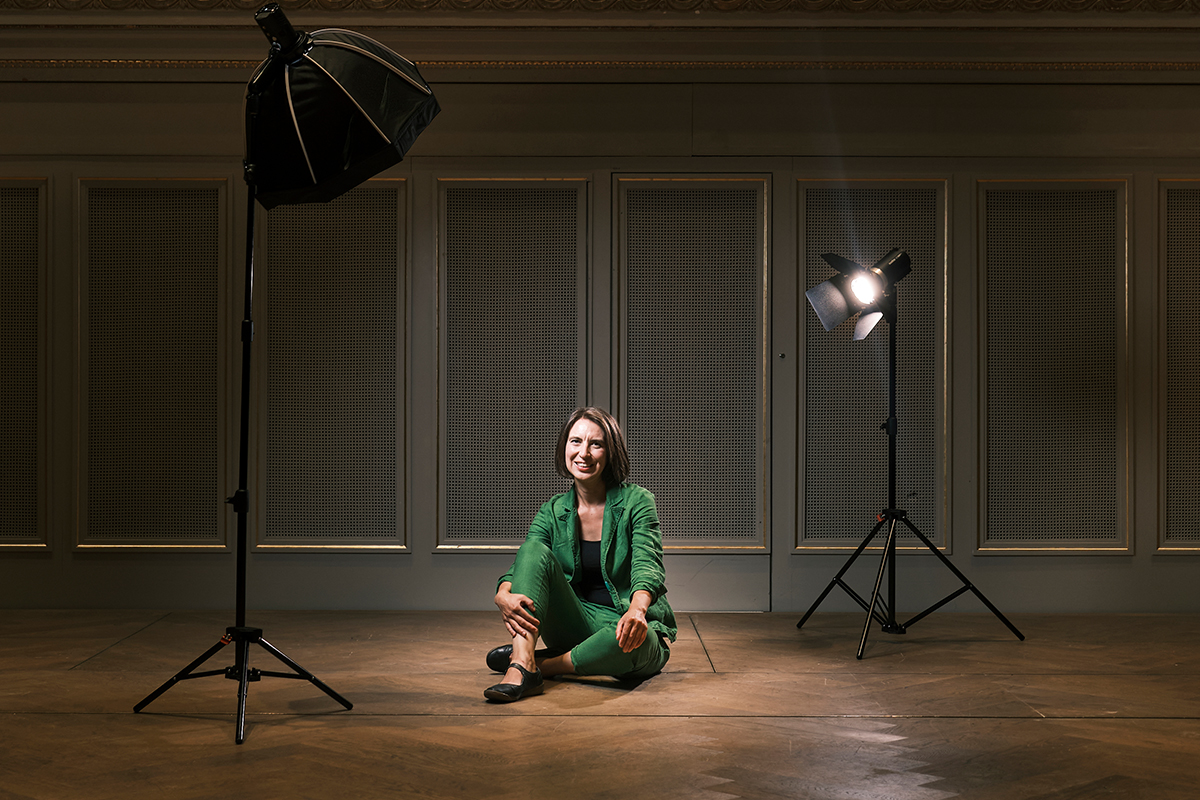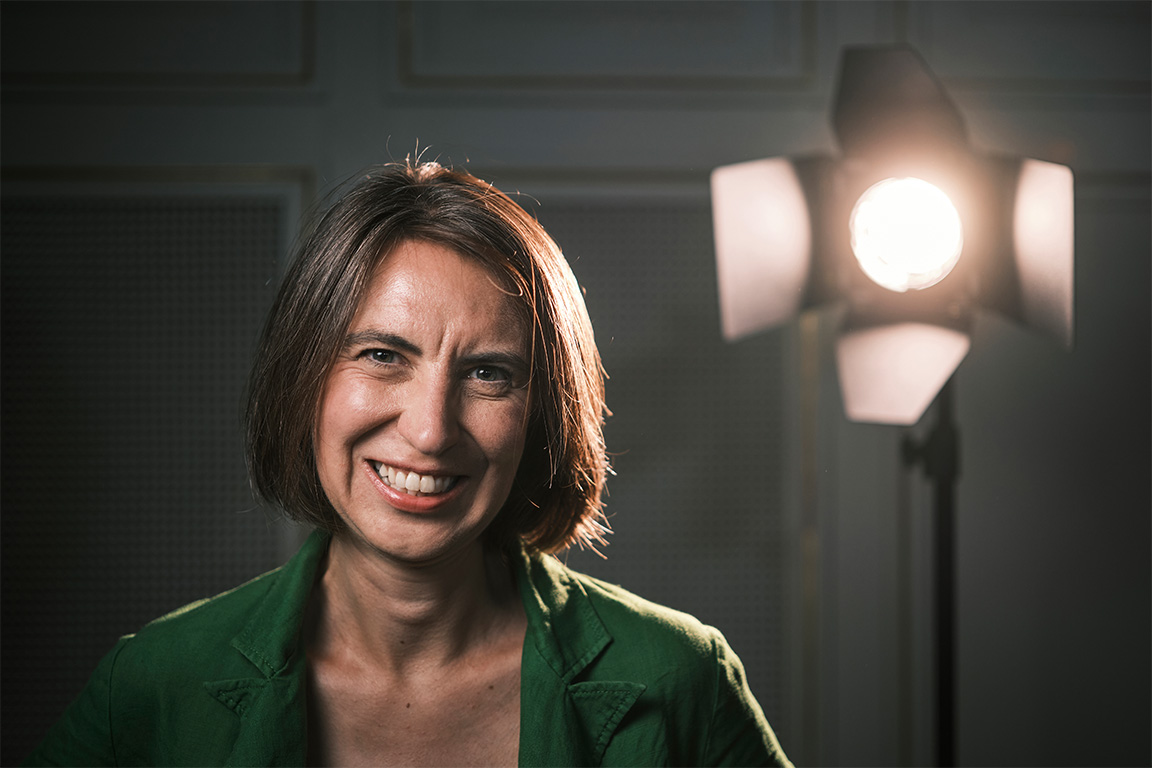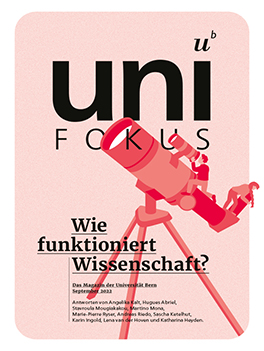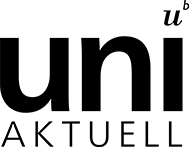Musicology
The power of music theater
Lena van der Hoven researches music theater all over the world. The 40-year-old from Berlin is particularly interested in previously marginalized population groups that do music theater.

Lena van der Hoven: At the institute, definitely; I love working together with my colleagues. The various professorships are interwoven thematically, that is the luxury of this institute. But outside the university, I find the German they speak here in Bern a bit of a problem coming, as I do, from Berlin. Sometimes I have to get people to repeat a sentence – and on second hearing it still sounds exactly the same as it did the first time round.
When we got in touch with you, you were at the Transnational Opera Studies Conference in Bayreuth, Germany. What was that about?The tosc@bayreuth is the largest international conference on opera and music theater. Specialists come together to give lectures and network. I found the time there particularly enriching because before becoming a professor in Bern, I worked in Bayreuth and also worked at the conference.
Are you going to be organizing events in Bern, too?Yes, in the new event series “Music theater – power – society”, we will be discussing the role of music theater in our society with scientists and artists. We will be investigating both historical and contemporary phenomena, works and productions. For example we will be looking at the question of what power music theater has on our society. At the next event, on September 29, I will be chairing a discussion on the premiere of “Sycorax” with the composer Georg Friedrich Haas and the performer Mollena Williams-Haas – incidentally a couple both artistically and in their private life. The work throws up topical questions about possession, appropriation and self-empowerment.
You’ve worked in Berlin and Bayreuth and have also spent some time in South Africa. So what brought you to the University of Bern?Well, it would be difficult to say no to a professorship with tenure track focusing on music theater. It is a one-off offer in the German-speaking area, and I just had to apply. And then there is the specific constellation here at the institute. I’m not just interested in opera and music theater but I am working specifically on South African music theater after apartheid. This transcultural aspect is picked up on by the cultural anthropology for music which is cultivated here at the institute. At the same time, there is some wonderful overlapping with historical musicology.
How would you explain your work to a child at kindergarten?I try to get young people to think about music theater. In my research, I investigate the role music theater can play in our society.
And how does science work in your area?The methods and sources vary depending on the object and the question. The last project I worked on in Bayreuth was about opera buffa as a European phenomenon in the 18th century. We were particularly interested in the aspects of migration, mapping and transformation. We worked with scores, analyzed libretti and consulted other historical sources. We looked at how comical opera spread throughout Europe from Italy. We were interested in the actors, their networks and journeys as well as the changes to the repertoire both in the court and in the commercial sector.
What other methods do you work with?My current research project on opera productions in South Africa after apartheid is a contemporary topic. In addition to evaluating printed sources, I can also follow the rehearsals of new operas, conduct performance analyses on site as well as carry out audience surveys and interviews with composers, singers and the directors of opera companies.

Sometimes I am inspired by practice. But frequently new tangents and questions arise while I am working on a specific subject. It is impossible to work on everything within the project that is being supported and it would be worth addressing certain aspects in a future project. But sometimes questions are put to me directly.
What is your greatest concern in terms of the quality of your research?The challenge in contemporary research is the lack of distance. Doing research on something modern is important but it will definitely mature with further approaches and perspectives in the future. My research should form a basis and stimulate new things.
What annoys you most about your area of research?In my work, I am particularly interested in focusing on previously marginalized population groups that do music theater. The strongly Eurocentric focus in opera research is problematic. But there is something happening here which I was very pleased to see at tosc@bayreuth.
Why did you choose this professional path?I was given early music education at the age of four. What later fascinated me about music theater was the connection between music, music theater and politics. When I started my doctorate, I was particularly keen on being able to continue to research my own subjects. With my various positions at the university, it was increasingly the bandwidth of the different tasks within this position that excited me. I really appreciate being able to specify my own topics. Teaching and the diverse exchange with students and colleagues at international conferences are also fulfilling. We scientists are also active in science communication. That leads to public discourse. And then we can organize our own events and hopefully help to shape socially relevant discussions.
Who could you recommend your work to?Well, you need stamina. A lot is demanded of you over a longish time in terms of the workload and you have to be flexible in terms of location and be highly innovative without having any guarantee of a professional future. That is something you have to be able to deal with. If you are lucky enough to get a safe position at some point, the profession can be multifaceted and thus very fulfilling. The new challenges that keep presenting themselves give you an enormous number of creative possibilities.
Did you grow up with an academic background?No, that is why it was also so important for my career that I had mentors. They show you what is possible. Now, I hope I can act as a mentor for my students
What encouragement and promotion did you receive?Alongside the mentors there were scholarships and my name was put forward for a prize which I was then actually awarded. The program for the promotion of early career researchers at the University of Bayreuth also helped me – it’s something you could compare to “Comet” here in Bern.
What would you have become had you not ended up in research?A dramaturg. Some of my work as a dramaturg in an opera house would have been very similar to what I do now, just more practice-oriented.
How do you divide your work up?During the lecturing period, I spend between 40 and 50 percent of my time teaching and supporting students, 20 percent on self-governance and 40 percent on research during which I write my habilitation, hold events, do research and make applications. During the semester break, I can spend 70 percent of my time on research. Twenty percent is then sufficient for support and preparation for teaching, and 10 percent for self-governance.
What has been the greatest success of your career to date?Getting this professorship!
And what other interests do you have outside your research?As a musicologist, I am naturally passionate about music theater, music and theater. I go hiking to balance that out. And I have a whole range of new opportunities since I moved to Switzerland.
About
Lena van der Hoven
Prof. Dr. Lena van der Hoven is assistant professor for music theater
at the University of Bern.
Contact: lena.vanderhoven@unibe.ch
New magazine uniFOKUS

Subscribe free of charge now!
This article first appeared in uniFOKUS, the new University of Bern print magazine. Four times a year, uniFOKUS shows what academia and science are capable of. Thematically, each issue focuses on one specialist area from different points of view and thus aims to bring together as much expertise and as many research results from scientists and other academics at the University of Bern as possible.
The online magazine of the University of Bern

Subscribe to the uniAKTUELL newsletter
The University of Bern conducts cutting-edge research on topics that concern us as a society and shape our future. In uniAKTUELL we show selected examples and introduce you to the people behind them – gripping, multimedia and free of charge.